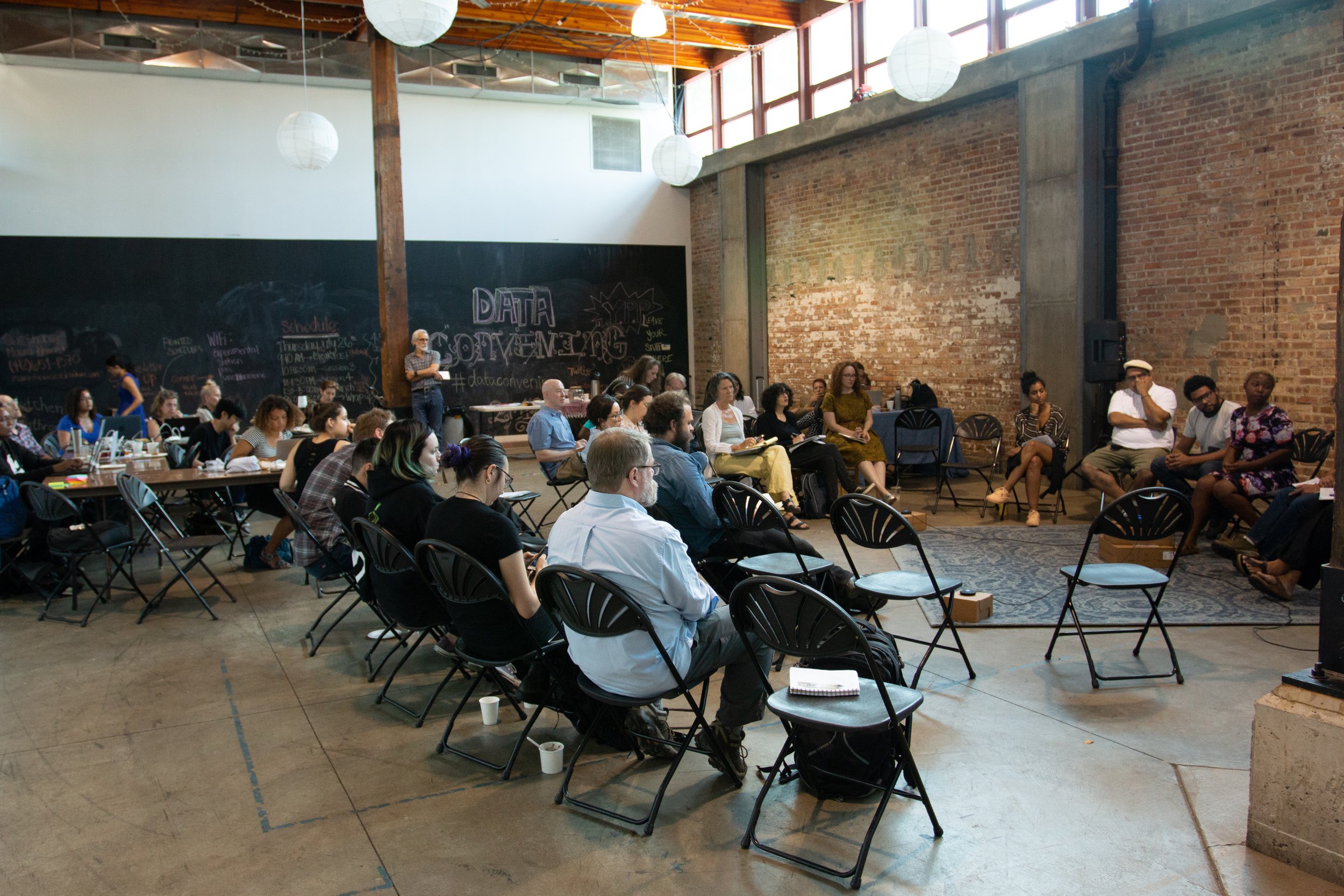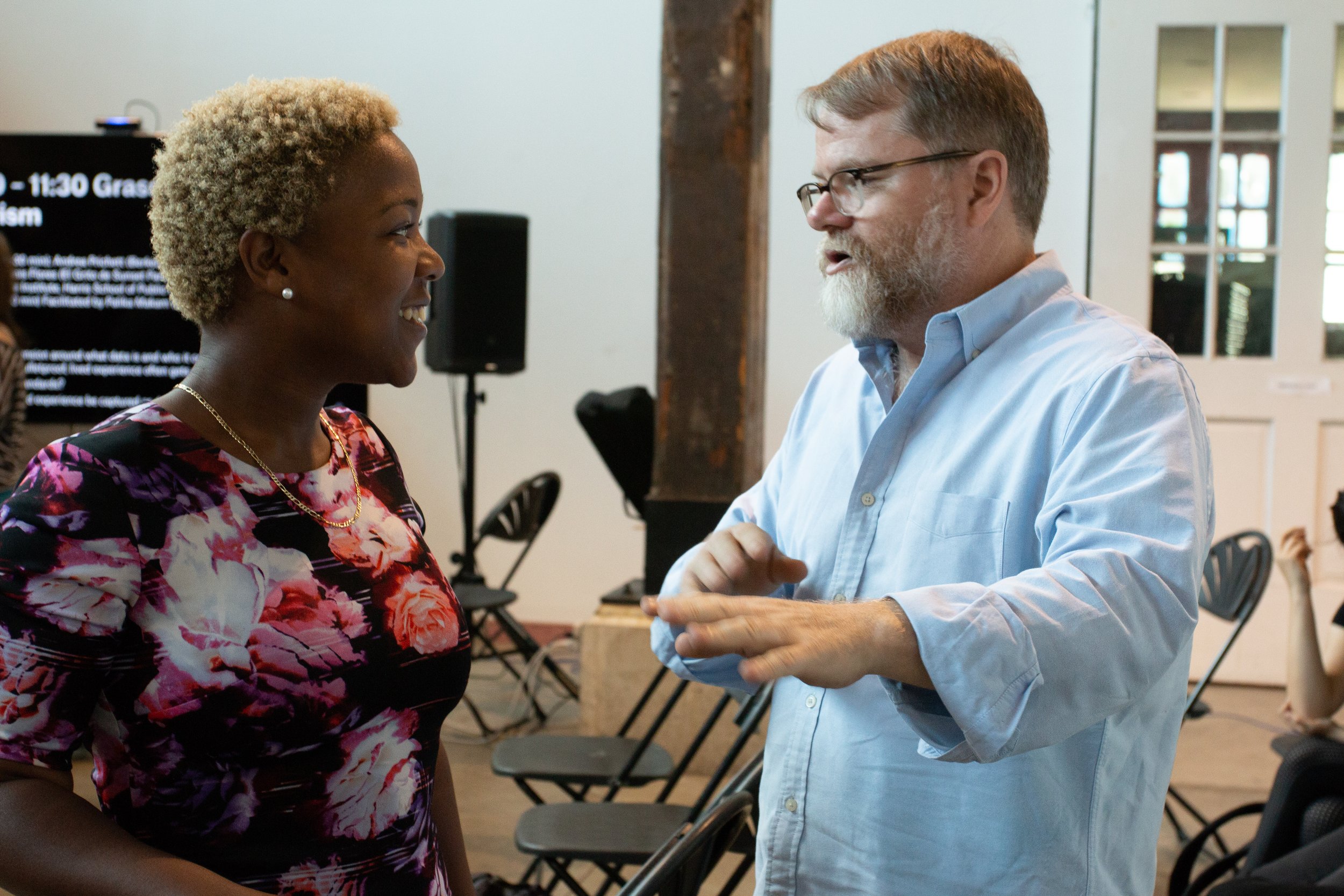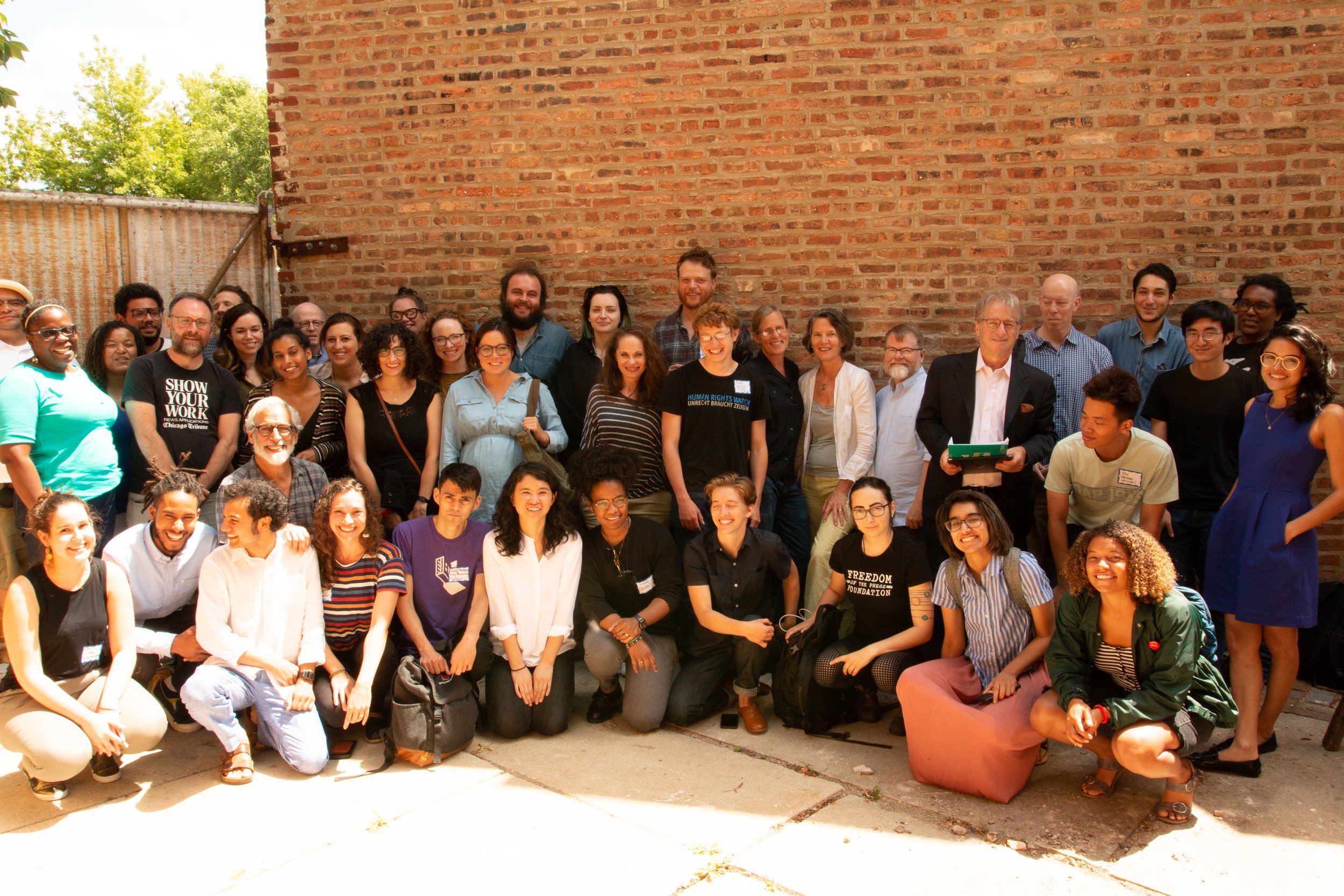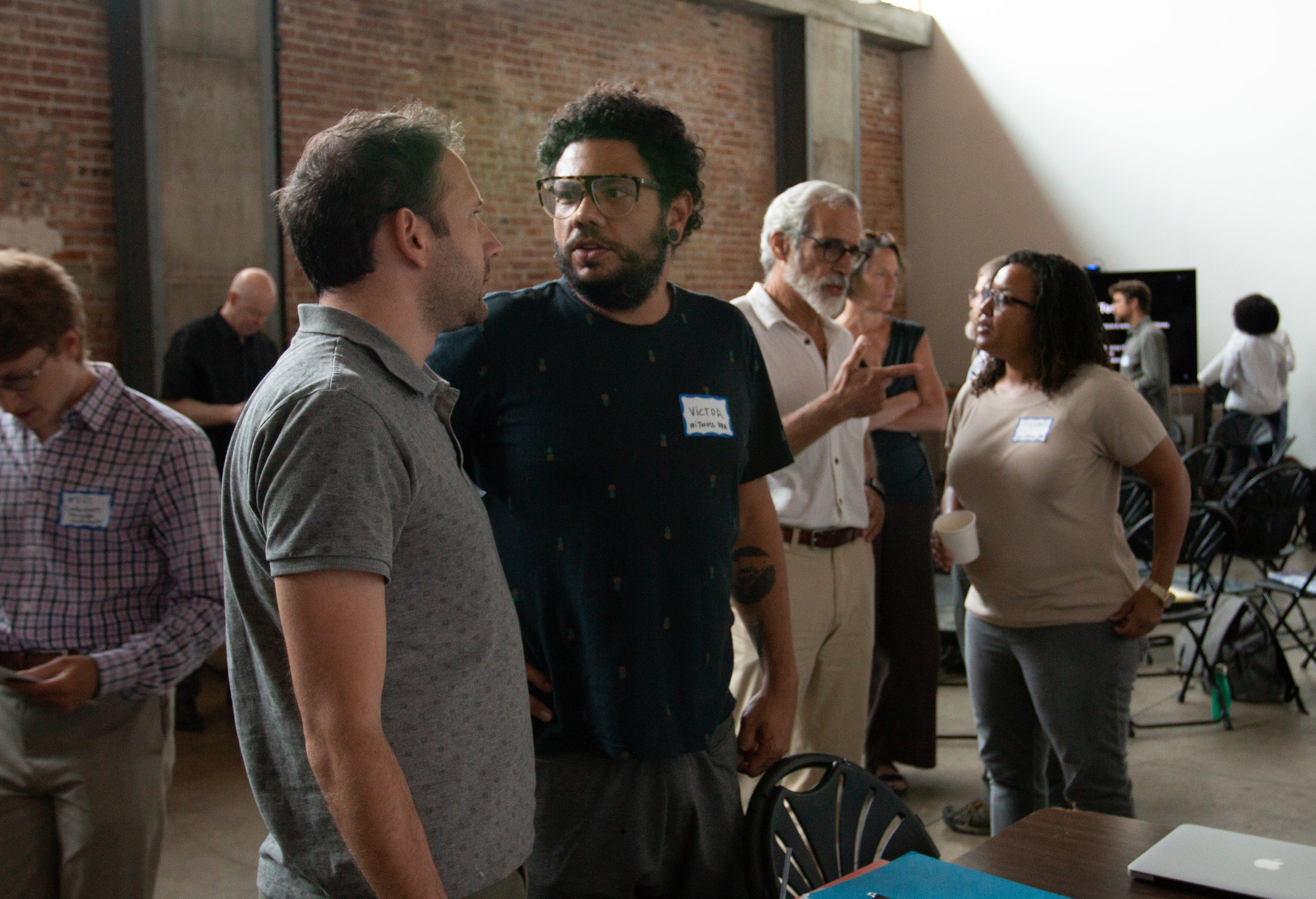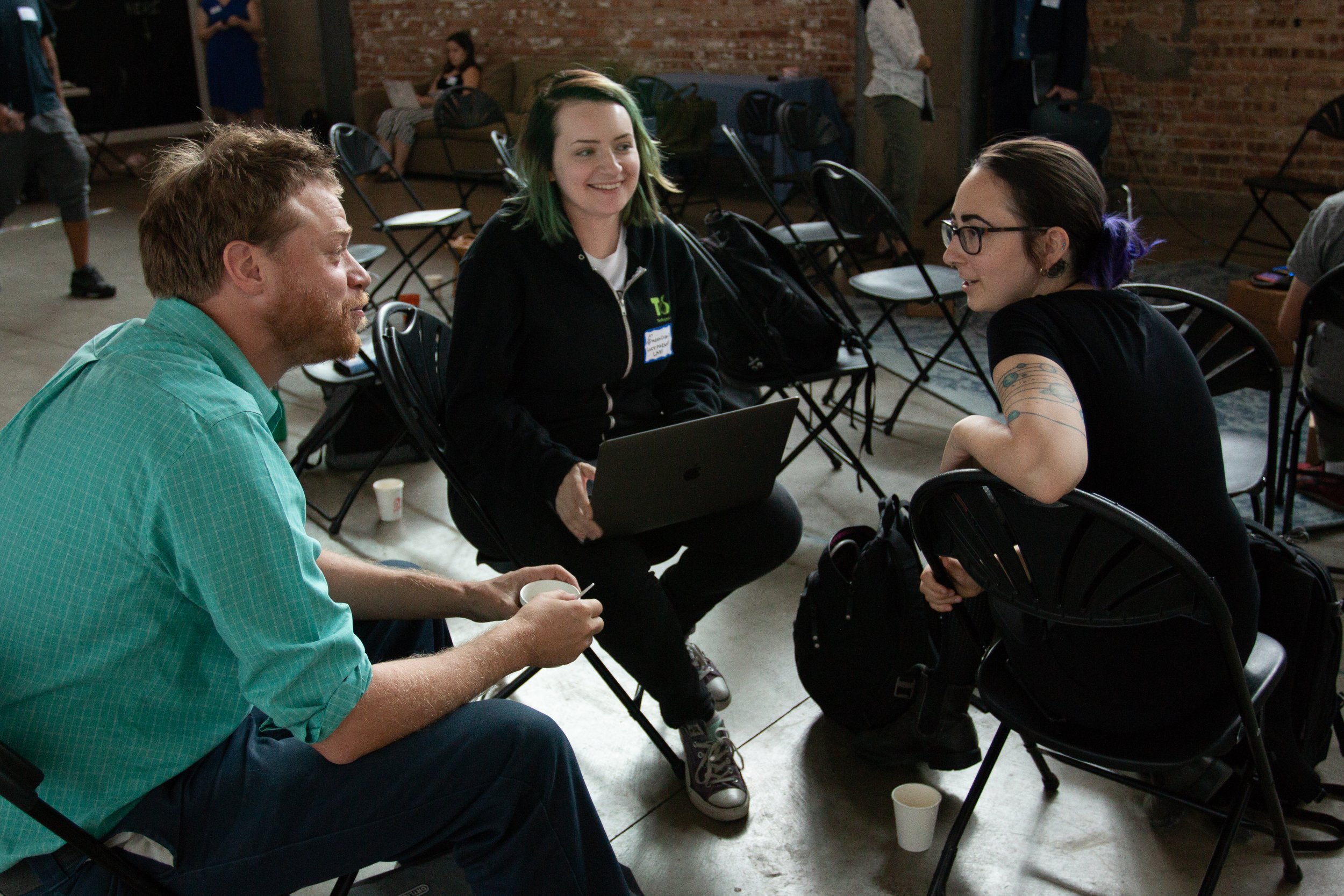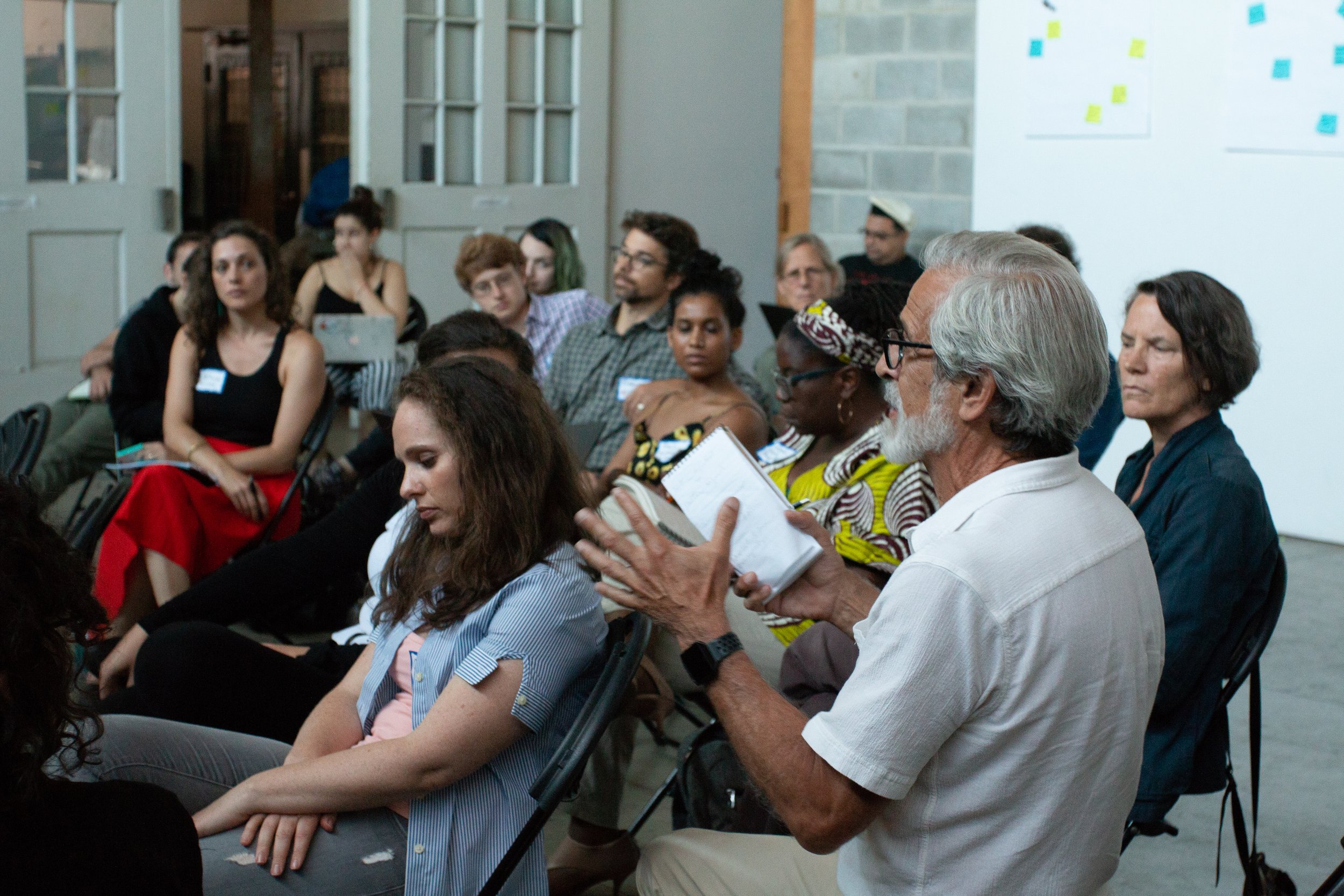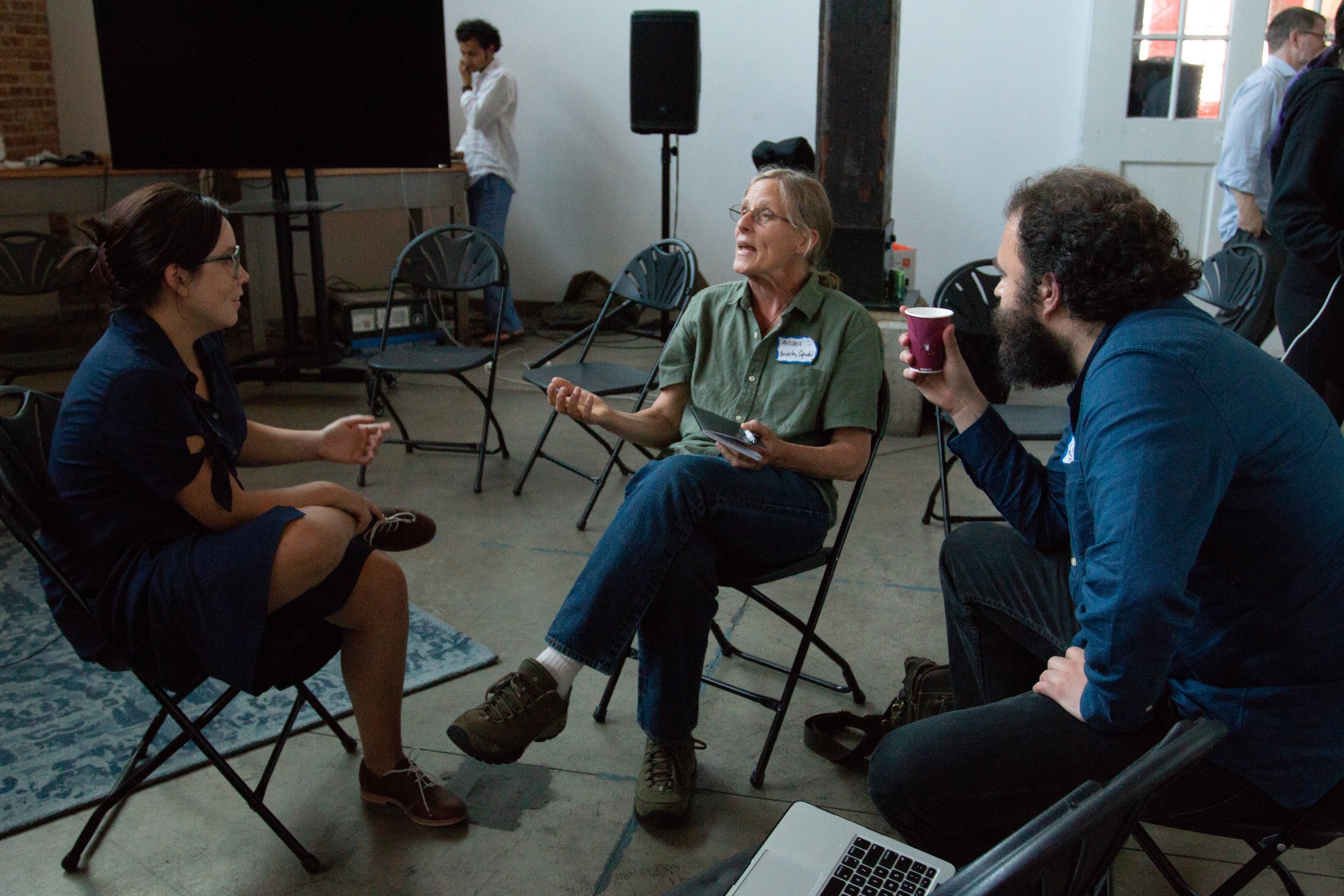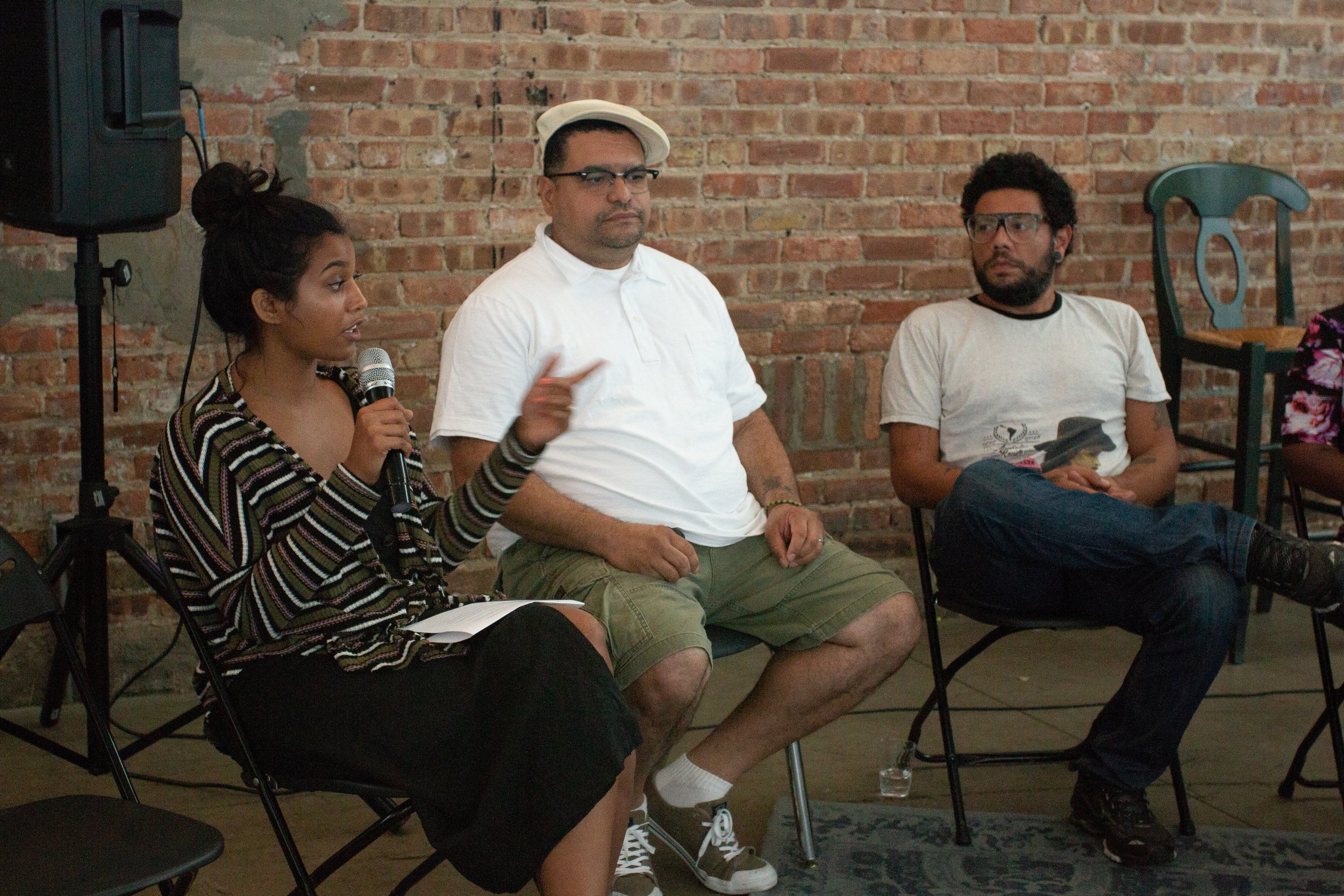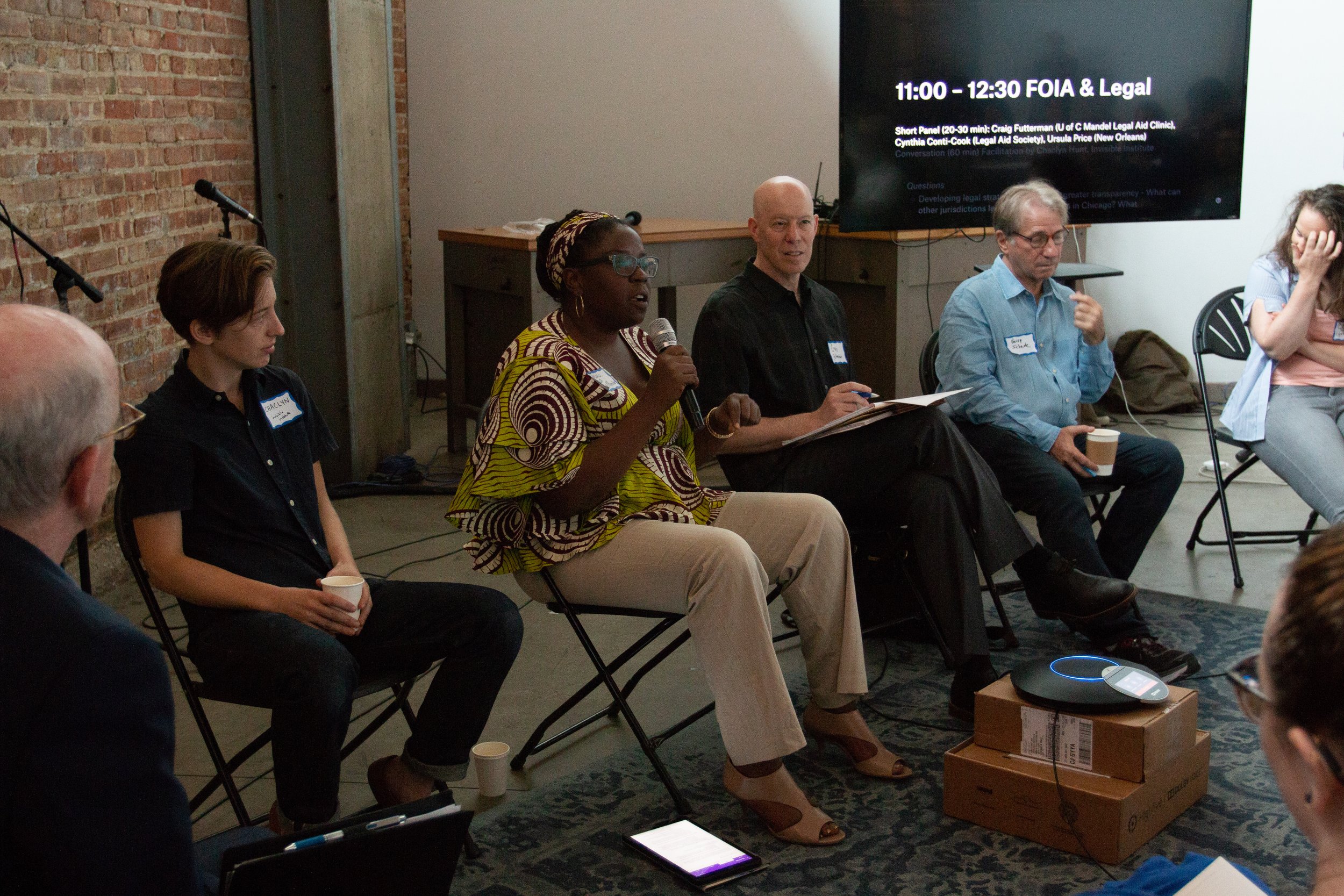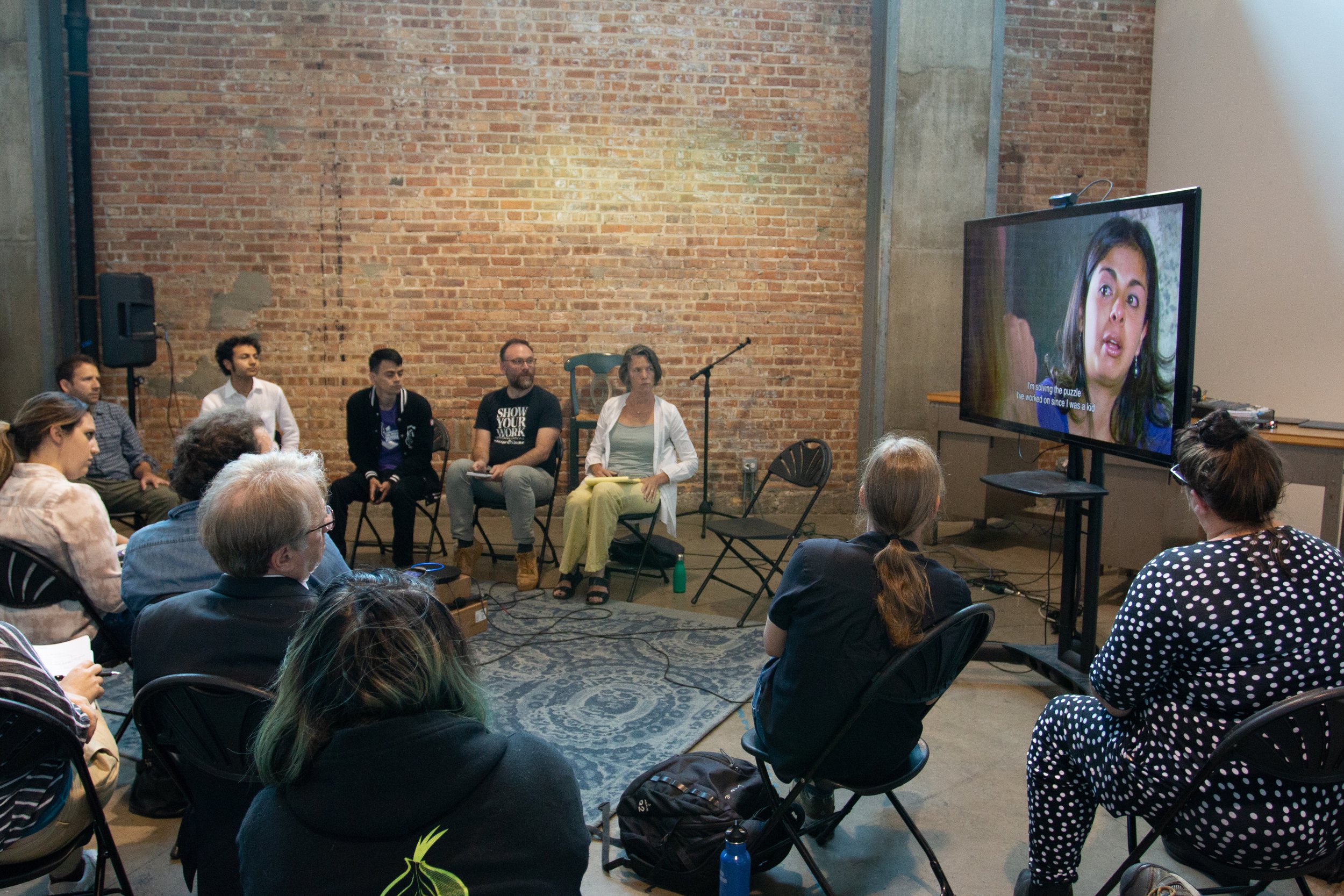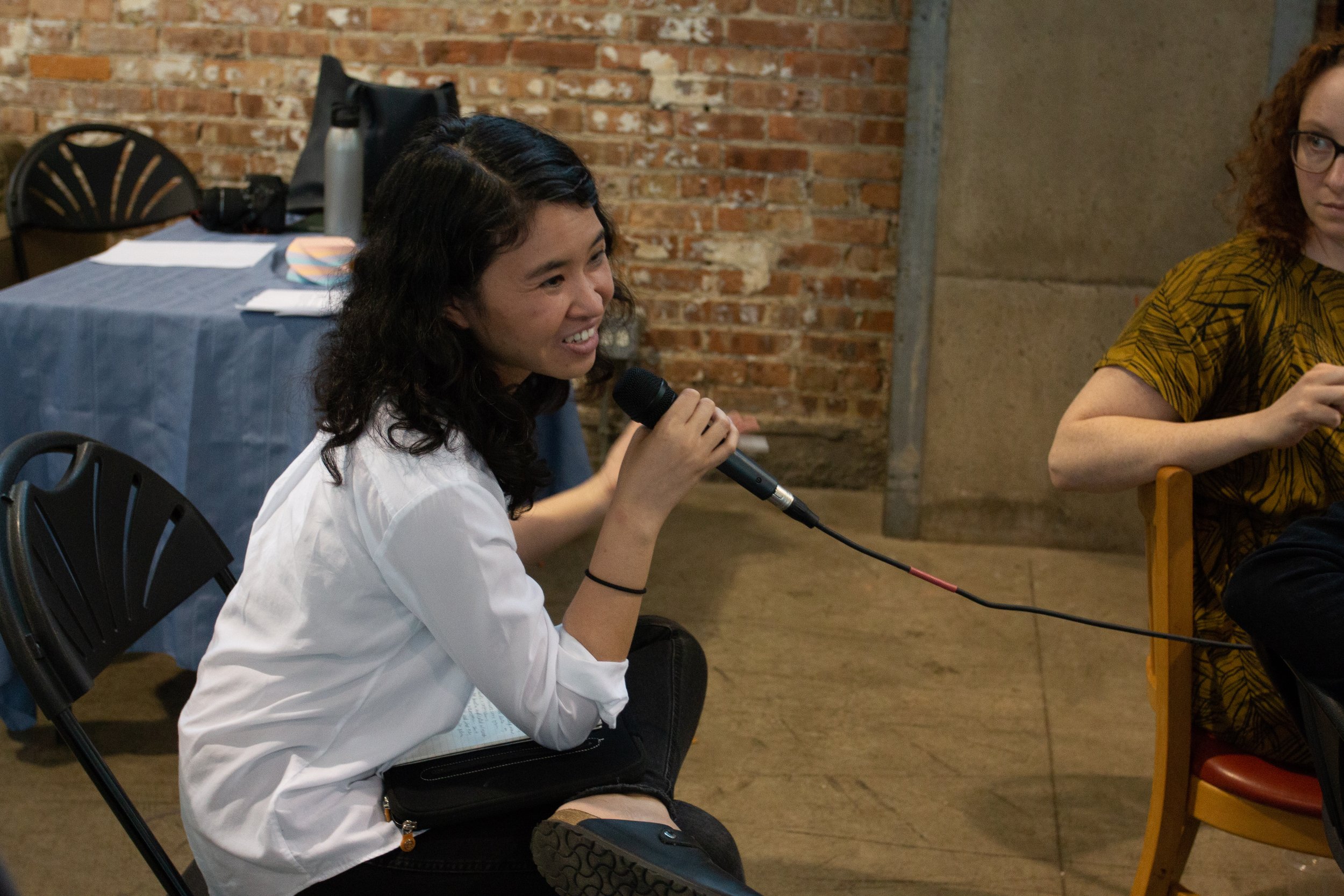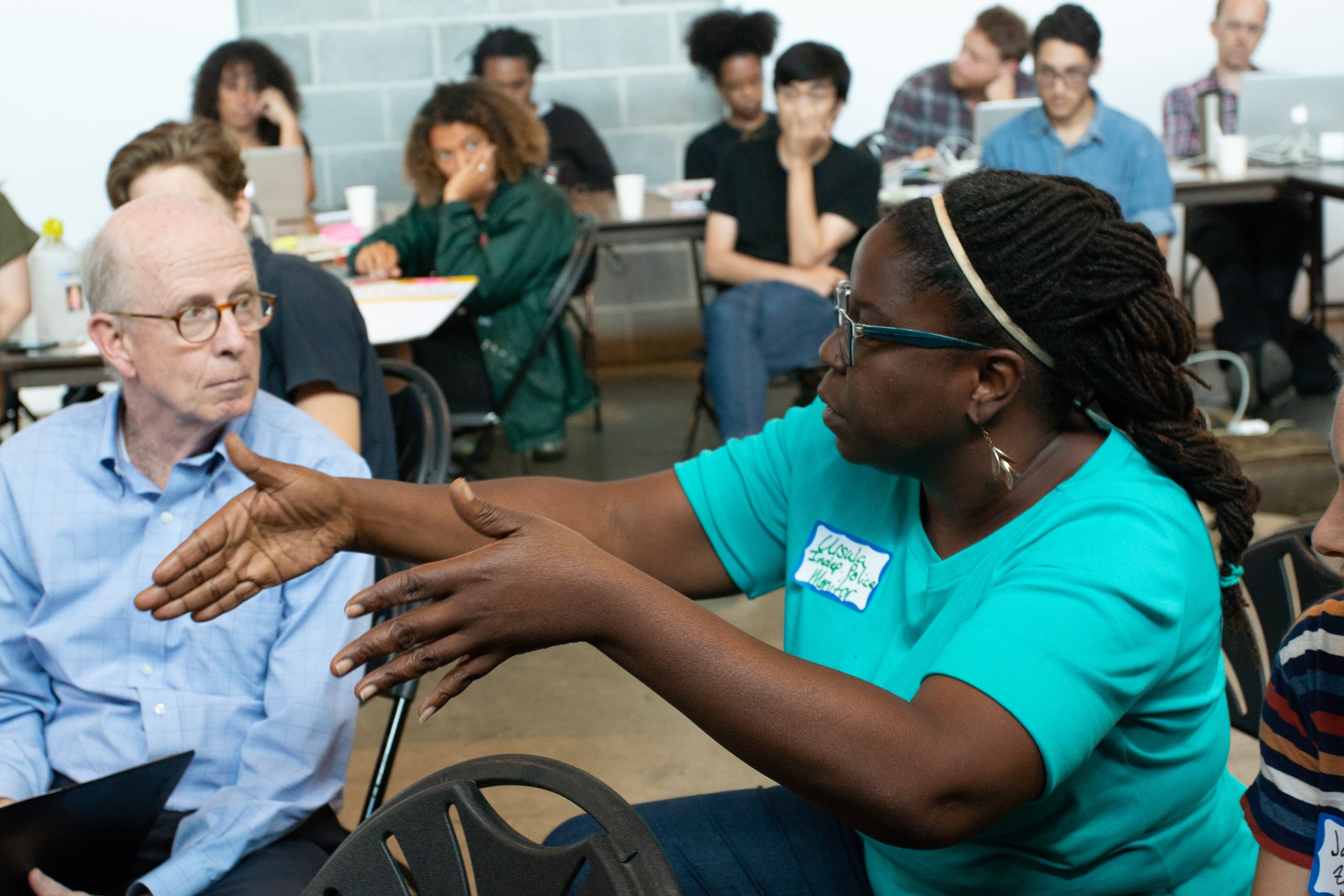Convening Police Data Collectors
In 2018, the Invisible Institute and international human rights organization WITNESS co-hosted one of the first convenings of organizations engaged in data collection relating to police violence to explore challenges and opportunities around tracking data about policing. The goal was to start a conversation about how to better collaborate and support initiatives working to build databases of policing data in cities across the country.
The gathering, supported by the MacArthur Foundation, brought together 45 journalists, data analysts, legal experts, archivists, and grassroots organizers for a series of discussions focused on safe and ethical data collection, data journalism, legal strategies for greater transparency and accountability, and the role of civil society in collecting information about policing. Participating organizations learned about each other’s work, identified common challenges and opportunities for collaborations, and imagined potential partnerships and skill and resource sharing opportunities. Read the notes from the 2018 convening here.
From the gathering, three major collaborative initiatives emerged:
1) Beneath the Surface, which analyzes police complaint narratives for patterns of gender-based violence;
2) the People’s Database for Community-Based Accountability, a new set of resources and a database template for copwatch or other grassroots police monitoring groups; and
3) the website capstat.nyc, a demonstration project to show how transparency can inform policy debates, improve public discourse, and be a resource for people harmed by police misconduct.
In November 2021, WITNESS, the Invisible Institute, and the National Association of Criminal Defense Lawyers’ Full Disclosure Project hosted a follow-up convening, bringing together over 60 data scientists, litigators, journalists, grassroots organizers and philanthropic partners for Obtaining, Organizing, and Opening Police Data, a virtual gathering held over three sessions to continue these conversations.
The goals for 2021 convening included:
> Bridging New And Existing Communities of police data collectors, incorporating new practitioners into the network, identifying duplicative efforts, and grounding the field in shared principles and ethical standards;
> Clarifying the purposes and impacts of collection, analysis, and dissemination of information on policing practices;
> Sharing best practices for data collection, aggregation and analysis;
> Creating spaces for groups to collectively wrestle with challenges and tensions including data collection and scalability, causality, privacy, and sustainability;
> Building alignment around the importance of engagement, involvement, and accountability to communities directly impacted by policing in data collection processes and framing policing data in broader public discourse.
Participants also shared information about several projects and partnerships that emerged from the 2018 convening.
The convening planning team, made up of Jackie Zammuto (WITNESS), Margaret Ringler (NACDL), Julie Ciccolini (NACDL), Chaclyn Hunt (Invisible Institute), and Maira Khwaja (Invisible Institute), prioritized participation from individuals and grassroots groups led by and accountable to communities directly impacted by policing, many of whom collect information about the impacts of policing through qualitative methods, video documentation, storytelling, and surveys. Participant bios and information about police data collection projects can be found in Appendix B.
The convening agenda, reproduced in Appendix A, created opportunities to explore how the purpose of data collection can shape the process, the potential harms to communities impacted by policing of data collection and dissemination, the roles and responsibilities of academic, legal, and media data collectors, and the development of shared practices and values to guide the work going forward.
Through panel discussions, roundtables, and small group thematic discussions, participants identified a number of principles that can guide this work going forward, as well as recommendations for funders and the field.
This report reflects the conversations and learnings gleaned from the 2021 Convening of Police Data Collectors. We produced this report to:
> share key principles, tensions, and practices discussed at the convening more broadly;
> help guide conversations and development of best practices among police data collectors;
> inform future project planning and funding decisions so that data collection work can be more strategically focused on preventing and reducing police violence, and is led, informed by and deeply connected and accountable to communities directly impacted by policing.
photos by Patricia Evans, 2018

